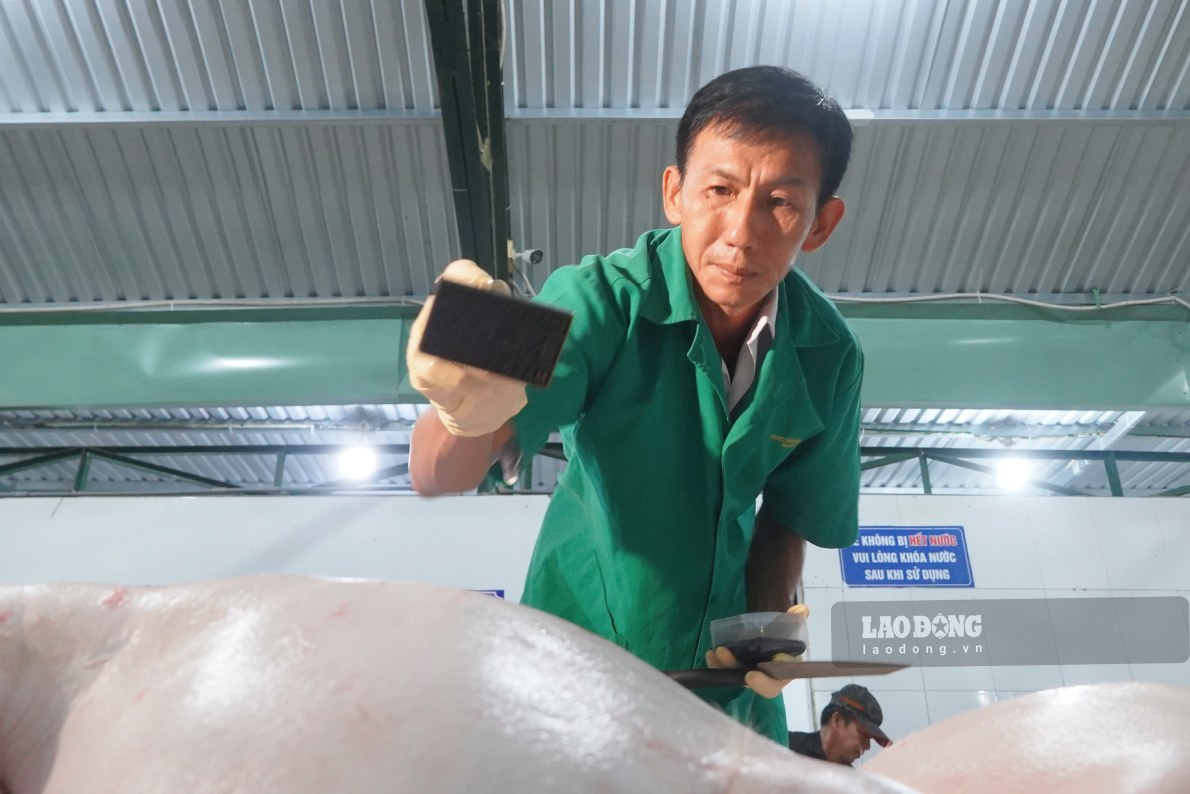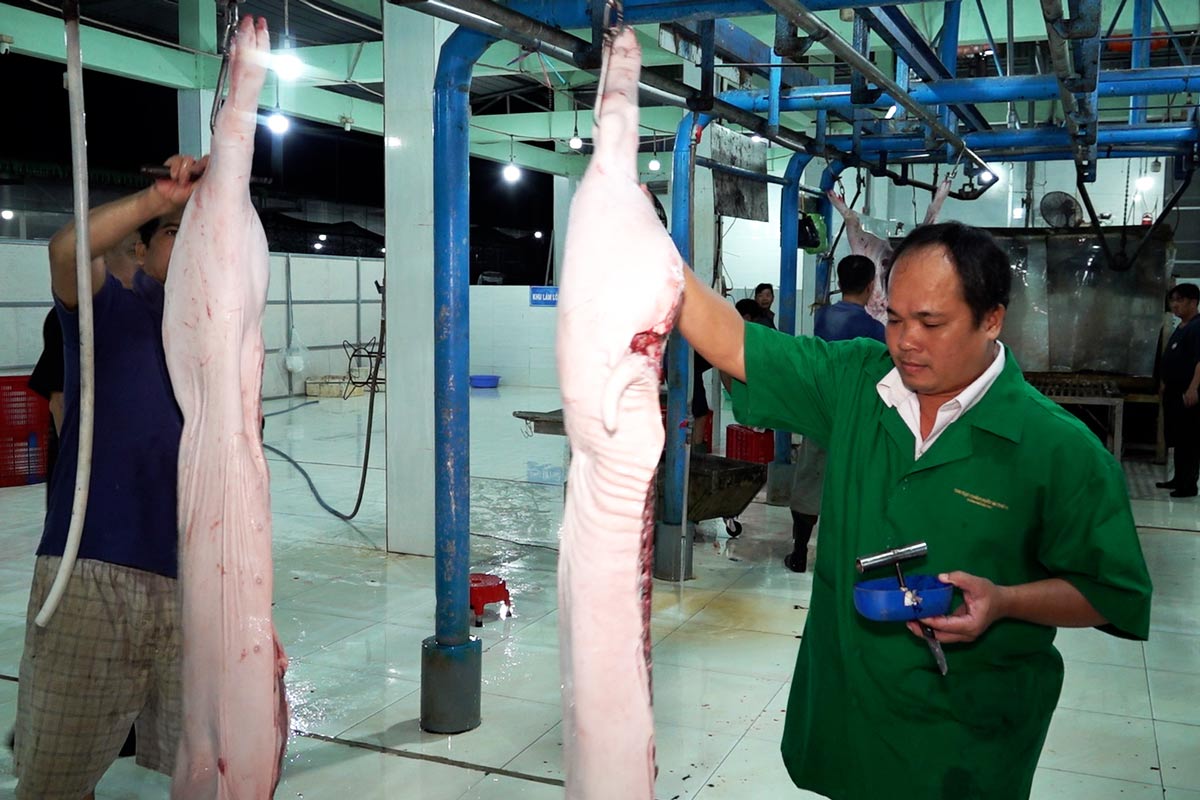Mr. Tran Phuoc Dai (45 years old), an officer of the Department of Animal Husbandry and Veterinary Medicine of Can Tho City, has been involved in the quarantine profession since 2003, after graduating from university.
For nearly two decades, he has been used to the beat of life: going to work late in the afternoon and returning home when it was just dawn.
A reporter from Lao Dong newspaper met him at Thanh Binh surgery area (Cai Rang district) - where an average of 120 pigs are slaughtered per day.
In his blue protective suit, Mr. Dai diligently checked each piece of pork before stamping.

"Working this job without a fixed day off, even during holidays and Tet, we have to assign each other to be on duty. My shift usually starts from 6pm the previous day to 7am the next morning and then I change shifts, Mr. Dai shared.
When the pigs are brought to the slaughterhouse, the veterinary staff will check the quarantine certificate for transportation from the origin, compare the quantity and characteristics of the pigs. Then have a clinical examination: observe health symptoms, classify healthy pigs - pigs suspected of disease.
If pigs are found to have signs of suspected infectious diseases, the officer will request isolation, monitoring or taking samples for testing.

Only when the meat meets the veterinary hygiene requirements will the officer stamp the veterinary control on the body. Each pig will be stamped with 6 stitches in easy-to-see locations such as the shoulders, abdomen, buttocks.
Mr. Dai confided: "The pressure of work is huge. If dirty pork is allowed to enter the market, it will not only violate professional procedures but also be prosecuted, lose jobs, not to mention the constraints on professional ethics".
Currently, Can Tho city has 22 slaughterhouses for livestock and poultry in operation. At each facility, veterinary staff are deployed 24/7 to carry out quarantine before and after slaughter, preventing the risk of pathogens spreading to the community.
The city also maintains 2 animal quarantine posts at Lo Te (Thot Not district) and Can Tho post - where vehicles transporting pigs, buffaloes, cows, and poultry from other provinces must pass to enter the area.
Mr. Nguyen Quoc Vinh - Deputy Head of the Department of Animal Husbandry and Veterinary Medicine of Can Tho City - said: Veterinary staff are on duty 24/7 at slaughterhouses, currently 100% of facilities have arranged temporary rest rooms so that staff can take turns resting. However, the allowance for night work is still low, not commensurate with the heavy nature and risk of exposure to epidemics of the profession.
"We have repeatedly made recommendations at meetings on increasing remuneration and supporting additional income for the brothers, but so far we have not been approved. However, overcoming all difficulties is the love of the profession and the sense of responsibility for the health of the community, Mr. Vinh shared.











